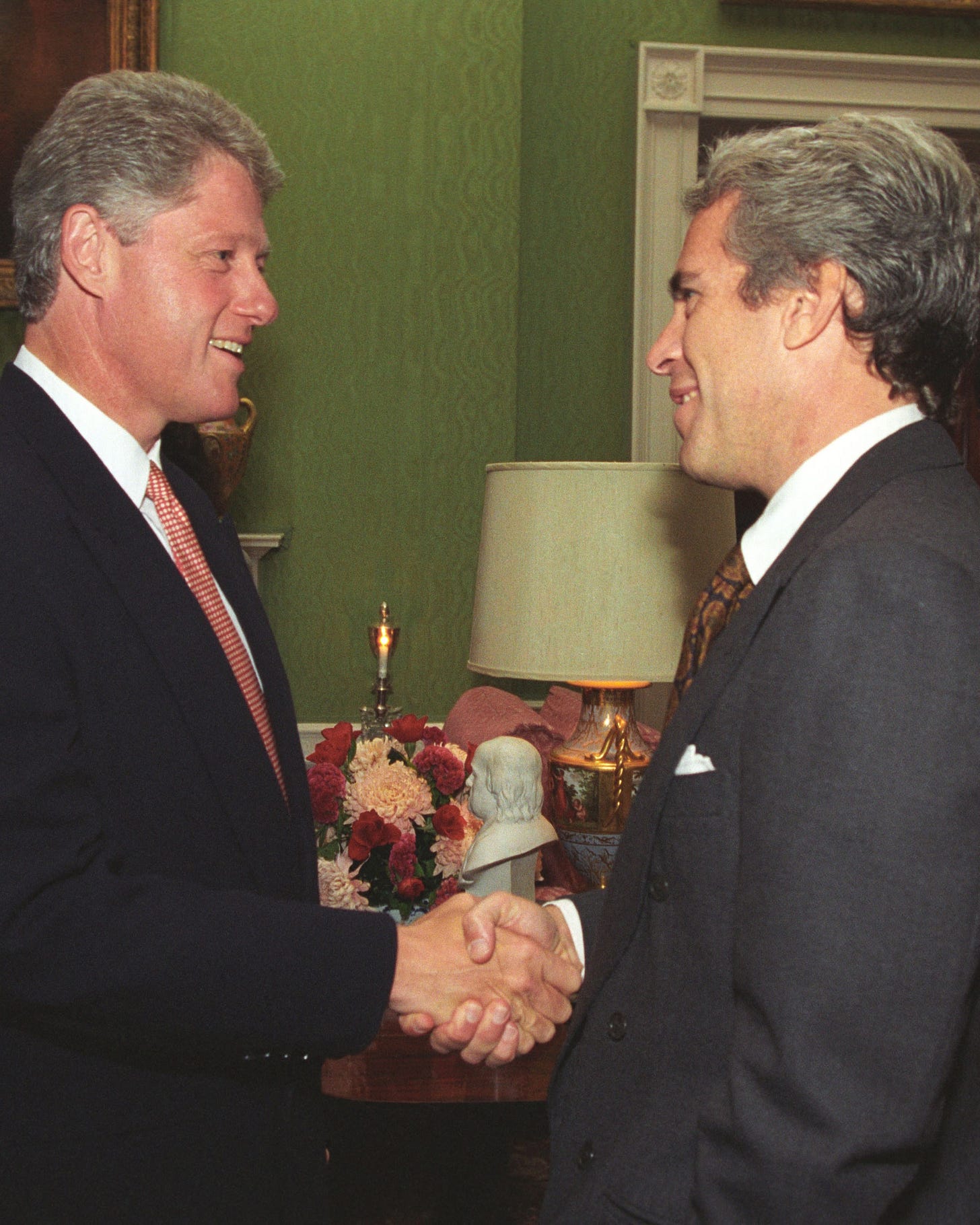***Disclaimer***
The Ice-Man game is by far the darkest section of the manuscript. It reveals the inherent violence of Capitalism games. Fascism tends to arise to further bind the state with the capitalist magnates in a moment of crisis, i.e., to save the existing system. Therefore, to understand games that fascists play, it is necessary to understand some of the players. The reader has been advised of the elicit content below.
ICE-MAN
Since the prey—the flesh itself, and especially human flesh—was largely replaced by more compliant stomach-filling commodities, it began to be used to satisfy psychological hungers. The pleasures of torture replaced or preceded the pleasures of eating, and “He He” took over from “Yum Yum.” It became less important to kill him (or her) than to hear and watch him (or her) scream and grovel. This became the essence of fascism—a roving band seeking male or female prey to torment or deride—whose art lay in probing for the victim’s weakness. [i]
-Eric Berne, What Do You Say After You Say Hello
Set Up: When you don’t suspect it, I’m going to violate you and offer aid and security.
Clinical explanation: Deep in the human personality structure is an obscured relic: a little torturer. This Little Fascist has the primitive capacity to seek out blood while disregarding the living tissue that surrounds it. Specifically, human tissue. Flesh and blood are the human animal’s ahistorical prey. Connecting this with games of supremacy, Eric Berne defined a fascist as having an “arrogant attitude” that is “still surviving in the gusto of cannibalism and the joys of massacre.” For his concept of The Little Fascist, the flesh of an Other is “indulged in and enjoyed at the expense of other human beings.” [ii]
Below are examples that highlight forms of interpersonal torture. A contrast is made between Eric Berne’s original game titled Rapo and the Capitalism game of Ice-Man. Therefore, Ice-Man is meant to illustrate how a derivative of Berne’s Rapo could be conceived as a Capitalism game. The short version of Ice-Man coincides with an analysis of a character from the film Top Gun. Val Kilmer plays the role of a cocky and skillful pilot with the callsign “Iceman.” Kilmer’s character is arrogant and cold. He is both charismatic and calculated. A derivative of that character’s gameplay will be referred to as Ice-Man.
Original games: Ice-Man has similar dynamics with the game Eric Berne referred to as Rapo or Indignation. White presents themselves as available and seduces Black with various signals. The pleasure of the romantic pursuit is what White is in it for and not a mate (this is played compulsively online in dating apps). When Black commits themselves to White, “the game is over.” If White “is polite, she may say quite frankly ‘I appreciate your compliments and thank you very much’, and move on to the next conquest. If she is less generous, she may simply leave him.”
A skillful player can make this game last for a long time at a large social gathering by moving around frequently, so that the man has to carry out complicated maneuvers in order to follow her without being too obvious. [iii]
In psychotherapy, especially group treatment, White will seduce their audience by suggesting a major life move. They are often playing Catch Me If You Can. In the final move, White decides to continue to “think about it” rather than making an significant behavioral change. At this point, Black is drawn into the game because they are playing I’m Only Trying To Help You! Ice-Man is in the same family as Rapo and Gee Mr. Wonderful.
Eric Berne’s original Gee Mr. Wonderful was described as a pleasant game. White praises and generously complies with Dr. Black in order to evade criticism and to stay unwell. In the supremacist Capitalism form, the Mr. Wonderful game has White in a compassionate role that disguises their motivation to exploit and violate Black. For example, Eric Berne would say that former president Donald Trump plays disagreeable games such as Kick Me and Now I’ve Got You, You Son of a Bitch! (see War games). [iv] Trump displays provocational behavior, which creates distress in Black. Trump therefore provokes a Kick in order to give himself license to go on the attack. Trump is arrogant and self-righteous when he calls people derogatory names: “Sleepy Joe” (Biden), “Crazy Nancy” (Pelosi) or “Crazy Kamala” (Harris), and “Ron Sanctimonious” (Desantis).
This behavior is part of Trump’s personality adaptation, which is the Manipulator: it is okay for him to “make fools” of people if it benefits him. Descriptively, this adaptation reveals his selfish callousness, irresponsibility, impulsiveness, charisma, and aggressive manipulation tactics. [v] As a master manipulator, Trump has little tolerance for frustration (“you are a nasty person!”), he has high energy and needs constant excitement and drama (Twitter) as well as being goal-oriented (“We’re gonna build the wall!”) and quick thinking on his feet.
To the latter point, in the 2016 Republican primary debate, Trump called out Jeb Bush as being completely wrong regarding America’s military adventures in the Middle East while on the debate stage: “We’ve spent five trillion dollars all over the Middle East, we have to rebuild our country, rebuild our infrastructure—you listen to [Bush] and you’re gonna be there for another fifteen years.” [vi] According to journalist Max Blumenthal, the foreign policy blunders of the U.S. gave rise to Al Qaeda and ISIS, which led to the citizen rage against the Washington establishment:
The political class had underestimated the depth of antiwar sentiment across middle America, and the depth of visceral hatred average Americans held for the political establishment. [vii]
Trump does not have the skill sets or political acumen of Barack Obama, so he does not play the same Influencer game. Instead, Trump monetizes his own corporate platform via his self-brand. Trump has survived based on his influence as a brand (see Media games). This is in contrast to the self-help provided by the Influencer game in order for White to monetize themselves. When Trump plays the Capitalism game of Mr. Wonderful, he starts from the Rescuer role: Make America Great Again. Then he switches to a Persecutor role by attacking immigrants, the media, China, etc. (If It Weren’t For Them). These attacks on others and subsequent Kicks he receives, “prove”—to himself and his loyal followers—that Trump is Mr. Wonderful. This sense of wonderfulness facilitates the switch to the Persecutor. The set up is, “I’m Mr. Wonderful” and then the switch is “Grab ’em by the pussy. You can do anything.”
Bill Clinton played similar games with similar role switches. For example, Clinton could feel your pain and play the saxophone or have a “national conversation about race.” However, Mr. Wonderful also had close ties to convicted pedophile Jeffrey Epstein. For example, Epstein and his young, attractive lady friends accompanied him on a total of 17 visits during Clinton’s eight years in the White House. [viii] Clinton has also allegedly inflicted sadistic pain on women himself.
In Christopher Hitchens’s book No One Left To Lie To: The Triangulations of William Jefferson Clinton, he interviews Juanita Broaddrick. In 1978, Juanita alleges that Bill Clinton raped her while Clinton was the then state attorney general. Written at the end of Bill Clinton’s presidential term, the chapter is titled, “Is There a Rapist In the Oval Office?” The title itself bares Hitchen’s provocational style.
If the allegations are true, this encounter illustrates the difference between the games Rapo and Ice-Man. Berne (1964) described the aspects of a third-degree game of Rapo. Essentially, a woman (White) baits or cons a man (Black) via a seductive attitude into having intercourse with her. White does this so she can make the false claim that Black raped her. The original analysis describes the third-degree game involving “tissue damage,” while ending in murder, suicide, or the courtroom. [ix]
Here White leads Black into compromising physical contact and then claims that he has made a criminal assault or has done her irreparable damage. In its most cynical form White may actually allow him to complete the sexual act so that she gets that enjoyment before confronting him. [x]
In Rapo, White falsely cries rape, which is a Rescuer to Persecutor switch on the Drama Triangle. This switch occurs while seductively trapping Black and then the subsequent sexual act of intercourse. The concealed motivation by White is to set up a con to hook Black into performing the acts. What Bill Clinton allegedly did was not a game of Rapo. Clinton was playing the Ice-Man game with his Little Fascist maintaining the initiative.
Berne (1972) noted that for those unaware of The Little Fascist in their personality structure they have “lost control of it.” One needs to confront themselves regarding these dark forces to comprehend where they are headed in life. [xi] It appears Clinton did not engage in that psychological work.
According to Juanita, Clinton forced himself onto and inside Juanita and then violently bit her on the lip. Recall, the Rapo game has White bait Black into a potential sexual act before rebutting them with the slogan “Buzz Off Buster” or the false cry that they were raped. So, antithetical to Rapo, Juanita did not go public for many years, and she never confronted Clinton about that sick day in 1978. However, Clinton apologized profusely to her in 1991. According to Hitchens’s (2000) interview with Juanita, Clinton said he was sorry and asked for forgiveness. Conveniently, Clinton apologized right before he launched his presidential campaign:
“Juanita, I’m so sorry for what I did.” He would say things like “I’m not the man that I used to be. Can you ever forgive me? What can I do to make things up to you?” And I’m standing there in absolute shock and I told him to go to hell and I walked off. [xii]
Juanita’s account fits with the Ice-Man game as opposed to the deliberate seduction and false cry in Rapo. Clinton’s insincere apology is what Eric Berne called Sorry About That. [xiii] In the Sorry About That game, White maintains power over the victim by speaking down to them. Therefore, the supposed apology comes from a place of supremacy. Psychologically, one can imagine Bill Clinton’s psychological motives in 1991: “I’m running for president so don’t tell anyone I’m a supremacist.”
Ice-Man can be further distinguished from the game Rapo in this manner: White invites Black to go somewhere or check something out. Imagine a Cowboy saying to a City Girl, “Let me show you where the hay is kept.” [xiv] On the social level it appears to be a straightforward transaction heading for a visit to the barn. On the psychological or covert level, the Cowboy is not interested in agricultural education. His motive is concealed for sadistic purposes. Ice-Man has White invite Black to a coffee shop. In the case of Clinton and Juanita, there were reporters at the coffee shop, so the invitation was extended to Clinton’s hotel room.
An important note, Clinton was running for governor at the time of the assault, so he was playing Mr. Wonderful. However, he switched to the Persecutor role, whereby Clinton allegedly rapes Juanita, i.e., the Dictator role. In the process of the rape, he bites her lip and breaks the tissue. This turned out to be a distinctive feature and motive that would occur in other victim’s accounts with Clinton.
Like the cocky swagger of Iceman in the film Top Gun, Clinton puts on his aviator sunglasses and exits the hotel room. Before he leaves, Clinton switches back to the Rescuer role by saying, “You’d better get some ice on that.” This is in reference to the tissue damage (split lip) based on the supremacist act. This is the final Persecutor to Rescuer role switch: Clinton bites and simultaneously offers a first aid kit for some sense of security.
Juanita recalled what took place at the conclusion of the Ice-Man game:
When everything was over with and he got up and straightened himself, and I was crying at the moment, and he walks to the door and calmly puts on his sunglasses. And before he goes out the door he says, “You’d better get some ice on that.” And he turned and went out the door. [xv]
A rape is a form of torture that is enjoyed by the perpetrator. According to Berne, the criminal rapist does not care much for the other person, and they use Black for fun and to play the chase version of Cops & Robbers (C&R). [xvi] In the third-degree form of Ice-Man, blood is drawn from the victim by the aggressor and this is especially true in anal rape, e.g., Muammar Gaddafi being sodomized to death by a bayonet. [xvii]

For White, the effect at the biological level is excitement and sexual pleasure via torture. Eric Berne describes how The Little Fascist probes and torments the victim for, ironically, emotional indulgence:
Torture brings about a peculiar intimacy between the torturer and the victim, and a profound insight into each other’s souls, an intimacy and insight which is often otherwise lacking in both their lives. The other by-product is a purely commercial one. The victim always has valuables which can yield a profit. [xviii]
The interpersonal form of violence in the Ice-Man game has been elucidated above. Now, the Capitalism game version will focus on the commercial forms of yielding profits. This is done by having White manipulate and violate consumers as victims in the game.
Thesis: Capitalism games are commercial forms of exploitation that extract “value” from the Other. Like the scene with Clinton and Juanita, the Persecutor (biting) to Rescuer (icing) switch is also visible in the economic domain. Specifically, at the corporate level. The same interpersonal maneuvers are used by large banks and financial institutions when there is a so-called “data breach.”
Data is the dominant engine of the global capitalist system. It is used to produce and reproduce capital without the profit-sucking labor component (see AI). With devices such as wearables, the extraction of data includes information regarding the inside of the body. Therefore, a data breach of the person’s identity is, in a sense, to “break the skin.” A digital form of tissue damage. Governments will no doubt use a cyber “attack” as a pretext for more security and overreach as the individual loses anonymity along with the ability to pay with cash. Colloquially, these entities will fuck us (Persecutor) using the implementation of “digital ID” to protect (Rescue) us.
Aim: Ice-Man finds White triangulating a mistake they made. For example, White accidentally released Black’s sensitive data. From an arrogant place, White does not take accountability for the release or theft of the customer’s sensitive information: they fuck you. In a letter or e-mail, White informs the customer (Black) by playing Sorry About That (Rape). This deceptive maneuver is played from a one-up status. It is a Persecutor to Rescuer switch: after the damage is done, i.e., data breach, and the pain has been inflicted, White Rescues Black with some personal TLC.
Metaphorically, White throws on some cool sunglasses and offers Black unsolicited advice: “You’d better get some ice on that.” White extends an updated security measure and a free subscription to a company that is Happy To Help! safeguard Black’s data. On the psychological level, White is conveying, I’m Only Trying To Help You! from the Rescuer role. Interestingly, the Ice-Man game is monetized via the Media in the Cancelled game. With Cancelled, experiential and exchange value is extracted from the made-public histories of people who have behaved badly. Ain’t P. Diddy Awful?
Central to Capitalism games is the ascendance and maintenance of supreme status. The maintenance of superiority comes with the process of being a somebody. One must either be Mr. Wonderful, or, specifically not Mr. Wonderful, e.g., Joe Biden. In contrast, being a nobody who knows they do not “know” anything, is very close to Zen. As R.H. Blythe commented, “To know that there is nothing to know, and to grieve that it is so difficult to communicate this “nothing to know” to others—this is the life of Zen, this is the deepest thing in the world.” [xix] Despite this sentiment, the Capitalism games are making windfalls off Eastern philosophies and religions. For example, the mindfulness movement and Buddhism (see Zen games).
ANALYSIS
Thesis: Let me seduce you, so I can fuck you and protect you.
Antithesis: Social justice via the nationalization of the monetary system to get rid of high finance.
Aim: Admiration, self-branding, wealth, immortality.
Roles: Persecutor to Rescuer switch
Dynamics: Gee Mr. Wonderful (Capitalist) becomes a Dictator (Fascist).
Examples: (1) Rape (2) Corporate / financial irresponsibility.
Moves: (1) Degradation-Violation (2) Humiliation (3) Faux forgiveness
[i] p. 269, Berne, E. (1972). What do you say after you say hello?: The psychology of human destiny. New York: Grove Press, Inc.
[ii] p. 268, Berne, E. (1972). What do you say after you say hello?: The psychology of human destiny. New York: Grove Press, Inc.
[iii] Berne, E. (1964). Games people play: The psychology of human relationships. New York, NY: Grove Press, Inc.
[iv] p. 62, Berne, E. (1964). Games people play: The psychology of human relationships. New York, NY: Grove Press, Inc.
[v] p. 124 & 128, Stewart, I. (1996). Developing transactional analysis counselling. Sage Publications: London.
[vi] p. 244, Blumenthal, M. (2019). The management of savagery: How America’s national security state fueled the rise of Al Qaeda, ISIS, and Donald Trump. Verso: New York.
[vii] p. 245, Blumenthal, M. (2019). The management of savagery: How America’s national security state fueled the rise of Al Qaeda, ISIS, and Donald Trump. Verso: New York.
[viii] viii, Webb, W. (2022). One nation under blackmail: The sordid union between intelligence and crime that gave rise to Jeffrey Epstein. Trine Day: Oregon.
[ix] p. 126, Berne, E. (1964). Games people play: The psychology of human relationships. New York, NY: Grove Press, Inc.
[x] p. 126, Berne, E. (1964). Games people play: The psychology of human relationships. New York, NY: Grove Press, Inc.
[xi] p. 268, Berne, E. (1972). What do you say after you say hello?: The psychology of human destiny. New York: Grove Press, Inc.
[xii] p. 111-112, Hitchens, C. (2000). No one left to lie to: The values of the worst family. Verso: New York.
[xiii] p. 161, Berne, E. (1971). Sex in human loving. New York: Simon & Schuster.
[xiv] p. 228, Berne, E. (1966). Principles of Group Treatment. Oxford University Press: New York.
[xv] p. 110, Hitchens, C. (2000). No one left to lie to: The values of the worst family. Verso: New York.
[xvi] p. 160, Berne, E. (1971). Sex in human loving. New York: Simon & Schuster.
[xvii] p. 269, Blumenthal, M. (2019). The management of savagery: How America’s national security state fueled the rise of Al Qaeda, ISIS, and Donald Trump. Verso: New York.
[xviii] p. 269, Berne, E. (1972). What do you say after you say hello?: The psychology of human destiny. New York: Grove Press, Inc.
[xix] p. 95, Blyth, R. H., Sohl, R. and Carr, A., editors (1976). Games Zen masters play: Writings of R.H. Blyth. The New American Library: New York.














